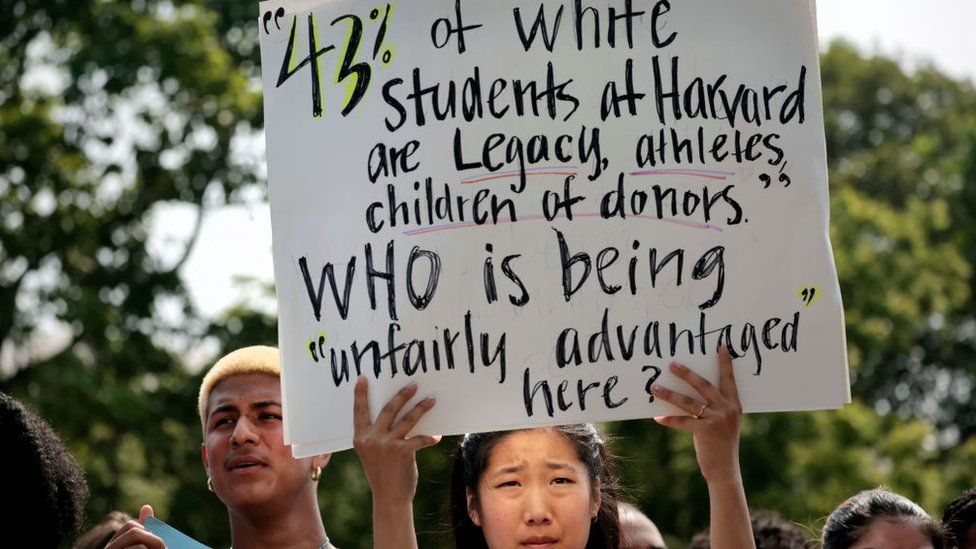In order to prevent Harvard University from favoring the children of alumni and donors in admissions, advocacy groups have petitioned the government.
The practice, also referred to as legacy admissions, has long been viewed as a benefit for the wealthy and white, and one that significantly disadvantages minority students.
Days after the Supreme Court banned race-based admissions practices, a federal complaint was filed.
On the complaint from Monday, Harvard chose not to comment.
Affirmative action, a long-standing policy that allowed race to be one of the deciding factors in admissions, was repealed by the nation's highest court on Thursday in a historic decision.
A contentious rift in the US educational system has been reopened by the decision.
However, Chief Justice John Roberts stated in his majority opinion that the process used by Harvard and others "picks winners and losers based on the color of their skin." Affirmative action has long been defended as one that increases diversity on college campuses.
In response to the ruling, the Boston-based non-profit Lawyers for Civil Rights (LCR) filed a federal civil rights complaint against Harvard for giving "special preference in its admissions process to hundreds of predominantly white students - not because of anything they have accomplished, but rather solely because of who their relatives are.".
The National Bureau of Economic Research studies, which show that nearly 70% of legacy and donor-related applicants are white and that such students are six to seven times more likely to be admitted to Harvard than non-legacy applicants, are referenced in the complaint.
It continues by saying that these preferences "systematically disadvantage students of color" and are "conferred without regard to the applicant's credentials or merits.".
The lawsuit, brought on behalf of three organizations that speak for the black and Latino communities in New England, asks the Department of Education to look into Harvard's legacy preferences, declare them to be unlawful, and order the university to stop using them if it wants to continue receiving federal funding.
Ivan Espinoza-Madrigal, the executive director of LCR, said in a statement that Harvard is not a privilege that comes with birth. "Eliminating racial discrimination means eliminating it all, as the Supreme Court recently stated. ".
Your family's last name and the size of your bank account are not indicators of merit, and should have no bearing on the college admissions process, he continued, so why are we rewarding children for privileges and advantages acquired by earlier generations? ".
Harvard declined to respond to the complaint made on Monday, but instead directed the BBC to its last week's response to the Supreme Court's decision.
The university's top officials "reaffirm the fundamental principle that deep and transformative teaching, learning, and research depend upon a community comprising people of many backgrounds, perspectives, and lived experiences," according to the statement.
The University of California and all of the public universities in Colorado have already outlawed legacy admissions, and there are numerous other initiatives to do the same elsewhere.
However, it still makes up close to a quarter of all freshmen admitted to some of the best colleges in the country, and proponents claim the policy cultivates a strong donor base and alumni community.







